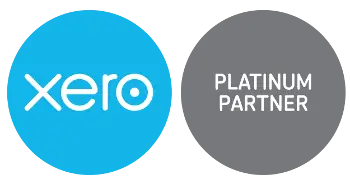What you can and can’t claim
Each occupation has specific circumstances which affect what can and cannot be claimed. Here are some snippets from some ATO occupation guides. Remember, regardless of the occupation you are in, you can only claim the work-related part of expenses, and you must meet the three golden rules:
- You must have spent the money yourself and not been reimbursed;
- The claim must be directly related to earning your income; and
- You need a record to prove it.
If you are not sure about your deductions, check out the ATO website.
Teachers and Education Professionals: Work-related expenses – Common deductions include union fees, additional costs you incur as a result of working from home, uniforms, expenses incurred in relation to excursions that you were required to attend, first aid courses, self-education courses directly related to your current employment, and technical or professional publications. However, you generally cannot claim things like the cost of home to work travel, and you can’t claim gifts or prizes you bought for students, or costs of attending functions.
Police: Work-related expenses - Common deductions include the cost of mending or cleaning your police uniform, union and professional fees, publications and self-education costs related to your current employment. Unfortunately, you can't claim a deduction for the cost of haircuts, grooming, weight loss programs or supplies, even though they may be covered by specific regulations. You also can’t claim costs associated with attending social functions or fitness expenses unless your employment depends on maintaining a level of fitness well above ordinary police standards, such as special operations.
Hospitality workers: Work-related expenses - You can claim the cost of union fees, tools and equipment you are required to buy for work (for example, chef’s knives), as well as uniforms that are unique and distinct to your employer or occupation specific (like chef’s pants), and courses that are directly related to your current employment (for example, a barista course for someone who works in a coffee shop). However, you can’t claim plain clothes, like black pants or a white shirt, even if your employer told you to wear them, and even if you only wear them for work. You also can’t generally claim the cost of trips between home and work, even if you live a long way from your usual workplace or have to work outside normal business hours – for example, public holidays or night shifts.
Truck drivers: Work-related expenses - Common deductions include expenses related to travel between two employers or two depots on the same day, union fees, sunglasses and sunscreen, uniforms that are unique and distinct to your employer, work-related phone calls and expenses incurred in overnight travel. However, receiving a travel allowance from your employer does not automatically entitle you to a deduction. You still need to show that you were away overnight, you spent the money yourself and the travel was directly related to earning your income. The reasonable amounts set for travel and meals are to provide relief from record keeping, not to set the amount you can claim as a deduction. You can only claim the amount you actually spent.
Retail: Work-related expenses - You can claim a deduction for travel between two workplaces on the same day (for example, between two stores), work-related phone calls, overtime meal expenses where you worked overtime and were paid an overtime meal allowance, and uniforms that are unique and distinct to your employer. However, you can’t claim a deduction for plain clothes or makeup that your employer told you to wear (for example, clothing from the latest fashion line) even if you work in a store that sells them. You also can’t generally claim the cost of home to work travel, even if you have to work outside of normal business hours (for example, late-night shopping).
Building and Construction employees: Work-related expenses - Common deductions include the cost of travel between two separate worksites on the same day, the cost of tools and equipment you were required to use for work, union fees, work-related phone calls, protective equipment, goggles and breathing masks, and protective clothing such as steel-capped boots and safety vests. However, you usually cannot claim home to work travel, and you cannot claim clothes or shoes that are not uniforms or are not designed to provide you with sufficient protection from the risk of injury at your worksite, even if the item is called ‘workwear’ or ‘tradie wear’ by the supplier.
Nurses, midwives and direct carers: Work-related expenses - Common deductions include union and professional association fees, travel between clients or sites on the same day, uniform and laundry expenses, work-related phone calls, and technical or professional publications. However, you cannot claim home to work travel, plain clothes you wear to work (like closed in shoes or black pants), or study that is not directly related to your current job.
Flight attendants and other airline employees: Work-related expenses - You can claim things like overnight travel costs where you have not been reimbursed, first aid courses, work-related phone calls, union and professional fees and the cost of uniforms that are unique and distinct to your employer. But you can’t claim a deduction for things like hairdressing, cosmetics, hair and skin care products, even though you may be paid an allowance for grooming and be expected to be well groomed. Grooming products are considered to be private expenses.
Read more ATO Website



